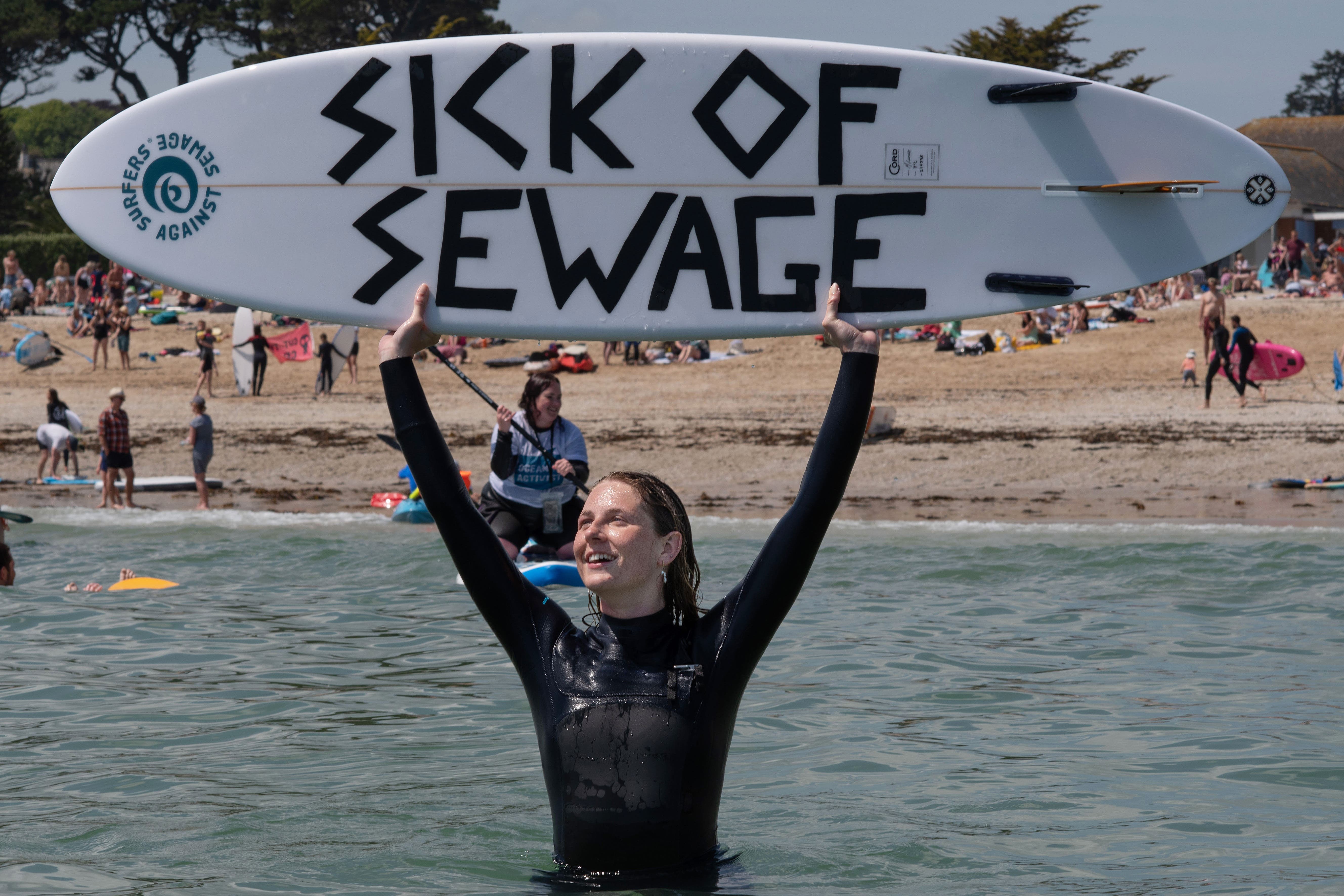Consumers to pay a lot of sewerage upgrade investment through bills – Coffey
The Environment Secretary said bill-payers will see rises in their payments to fund private investment to prevent sewage spills.

Your support helps us to tell the story
From reproductive rights to climate change to Big Tech, The Independent is on the ground when the story is developing. Whether it's investigating the financials of Elon Musk's pro-Trump PAC or producing our latest documentary, 'The A Word', which shines a light on the American women fighting for reproductive rights, we know how important it is to parse out the facts from the messaging.
At such a critical moment in US history, we need reporters on the ground. Your donation allows us to keep sending journalists to speak to both sides of the story.
The Independent is trusted by Americans across the entire political spectrum. And unlike many other quality news outlets, we choose not to lock Americans out of our reporting and analysis with paywalls. We believe quality journalism should be available to everyone, paid for by those who can afford it.
Your support makes all the difference.The Environment Secretary appeared to accept that bill-payers will have to pick up “a lot” of the cost relating to infrastructure improvements designed to prevent sewage entering England’s seas and waterways.
Water companies in England last week announced a £10 billion plan to reduce the number of sewage discharges into rivers and seas, while apologising for the pollution.
But campaigners were incensed that the proposals involve consumers being given higher bills to pay back the investment.
I think you're right to say that a lot of this investment gets repaid through bills
Therese Coffey, who said she was “pretty fed up” with water companies and that it was right for the sector to have apologised, confirmed that “a lot of” private sector investment in the water industry “gets repaid through bills”.
But she said penalties and fines that the private water companies are ordered to pay could see bill-payers reimbursed.
It comes after Anglian Water said last week that customer bills were likely to rise by £91 per year to pay for the £10 billion of industry investment, with £12 of that relating to storm overflow upgrades.
Storm overflow outlets, of which there are 15,000 in England, currently release excess sewage and rainwater when under strain, to prevent sewers becoming overloaded and backing up into homes.
Ms Coffey, asked on Sky News’ Sophy Ridge On Sunday programme whether it was correct to say consumers would foot the bill for the improvement works, said: “It’s going to be a combination.
“Of course penalties and fines are paid for by the company, not by the bill-payer.
“But in terms of general payments, I think you’re right to say that a lot of this investment gets repaid through bills.”
The Environment Secretary said the £10 billion announced by the private sector would feed into an overall UK Government £56 million storm overflow plan.
She has called on water firms to have an action plan for “every single storm overflow” on her desk by the end of next month.
There were 301,091 sewage discharges in 2022 in England which amounted to 1.75 million hours of discharge, according to Environment Agency figures, though they do not include the volume of sewage.
The Government’s storm overflows discharge reduction plan, published in August 2022, aims to eliminate sewage dumping by 2050 while cutting discharges close to “high priority” areas by 75% by 2035 and 100% by 2045.
Ms Coffey used an interview on the BBC to criticise the record of other countries within the UK on dealing with sewage leaks.
She told the Sunday With Laura Kuenssberg programme: “Frankly, we would not even know about this if it wasn’t for a Conservative Government insisting on the monitoring and the publication of that data.
“We’re not seeing that in Scotland. And frankly on average, the frequency of sewage flows is happening far more in Wales than it is in England.”
Monitoring stations for Welsh Water, a non-profit organisation, show the company discharged sewage for 602,987 hours in 2022, while publicly owned Scottish Water recorded 14,008 spills in 2022 amounting to 113,230 hours.
Northern Ireland is not required to produce the same data
Put to her that the European Environment Agency ranked UK bathing waters the worst on the continent, Ms Coffey said that was “not true”.
“We now have 92.9% of our bathing waters designated good or excellent — that was last summer,” she said.
“That’s up from 70% in 2010. There has absolutely been investment and work to make sure that our bathing waters are getting cleaner and cleaner.”
The Liberal Democrats have called for Ms Coffey to issue her own apology for the number of sewage discharges being permitted on the Tory Government’s watch.
The party’s environment spokesman Tim Farron said: “The sewage scandal is a damning verdict on the Government’s failure to protect our treasured rivers and lakes.
“While the water companies have apologised, Therese Coffey has still failed to.
“She oversees a Government that continues to let water companies dump outrageous amounts of sewage into our rivers.”